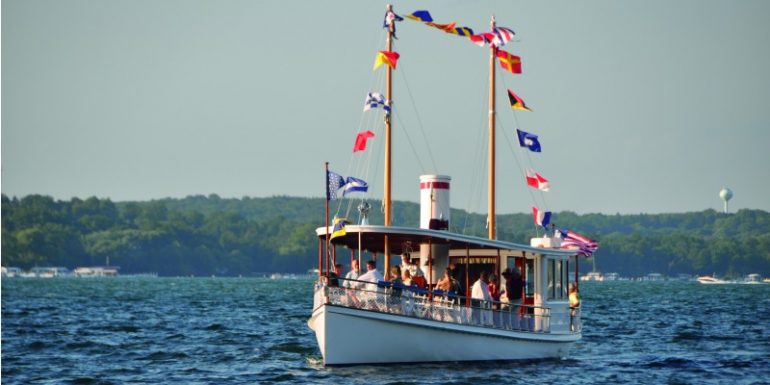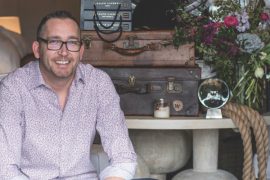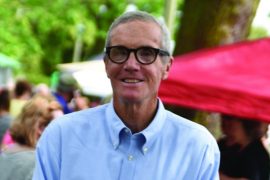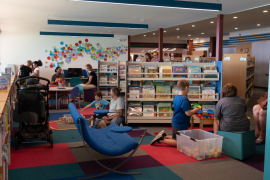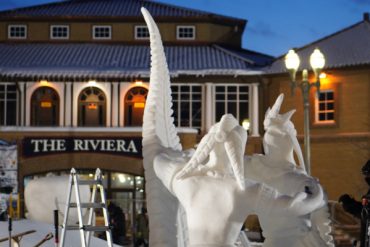Larry Larkin, a Linn township resident, is an active member of the Antique and Classic Boat society, the society of Automotive engineers, and a founding member of the Lake Geneva Historical Society. Larry has been actively involved with antique boat restoration and lake preservation for decades.
TELL US HOW LAKE GENEVA BECAME YOUR HOME.
I first came to Lake Geneva in the summer of 1942. My family had a summer cottage on the south shore in Rainbow Bay about a half-mile from Fontana. Things were still primitive at that time. The cottage had a single bathroom inside but also an outdoor privy. The cottage wasn’t heated, except for a large fireplace. There was a well with a hand pump, but the water for the sinks and bath tub came from the lake via a small electric pump. We had a single radio in the living room connected to a copper wire aerial that ran between two trees in the backyard. We could get WGN and a couple of other Chicago radio stations with a lot of static, but television was in the distant future. We sometimes rowed to Fontana in the morning for a newspaper and groceries. It was an adventure, much like those described in the Hardy Boys series of adventure/detective stories.
Over the years, highways improved, gravel driveways were paved, cottages evolved into year-round homes, and all the appliances and conveniences of city living arrived.
In 1955 I bought Normandie, and that became the focus of my summers. Sue and I got married in 1960, and in 1964 we built our own summer home where we live today.
I had a job offer here in 1980 and, after a lot of soul searching, we thought this was a better place to raise a family than the big city. So our summer cottage became a year-round home.
WHAT ARE THE IMPORTANT ISSUES FACING GENEVA LAKE?
Well, the lake is a jewel, possibly the finest jewel of all the lakes in the country. In my mind, the big issue is how to protect and preserve it. There is tremendous pressure on the lake from heavy boating use, pollution from farm and surface run-off carrying with it fertilizers and pollutants, and invasive species such as zebra mussels. In addition, there are developers who try to pack as many houses on a property as they can, and others who leave the area and try to sub-divide their properties and create as many small lots as possible. In effect they are enriching themselves at the expense of future generations.
WHY RESTORE ANTIQUE BOATS?
It isn’t so much antique boats in general as it is the 100-year old steam yachts that are unique to Lake Geneva that intrigue me. I think these boats have historic value. Not only because there are few boats anywhere remaining from 100 years ago, but also because of the role these boats played in the early development of Lake Geneva. Their design evolved to fit the needs of those at the turn of the 19th century. In the early 20th century when the automobile became reliable their usefulness declined and the 1930s Depression assured their demise.
They are also attractive boats, nice lines, good proportions, all together elegant craft. They have sentimental value. For example, when I met my wife, Sue, when she stepped aboard the Normandie one romantic evening in June of 1958. And it gives me a great deal of artistic satisfaction to take a piece of metal or wood and fashion these basic raw materials into something of beauty and utility.
I also want to leave this world a little better than I found it. I want to think that my presence has helped preserve something of our heritage, something unique that we can pass on to future generations that will show people 100 years from now something worthwhile from our era. I hope the boats that I have built and restored will last another 100 years. We have used the best materials and the best workmanship, and we have incorporated as much of the original boat as possible to preserve their essence. This is my gift to posterity.
HOW CAN EACH PERSON HELP IN THE PRESERVATION OF GENEVA LAKE?
The future of the lake is largely in the hands of the elected officials in the communities surrounding the lake. They determine through zoning and permits what is allowed. People need to get involved to ensure that the best officials are elected, and they need to constantly tell those elected officials that they want the lake protected from developers and others whose actions would increase the intensity of use and have harmful effects long term. Not just lake shore development, but development throughout the lake’s watershed area.

